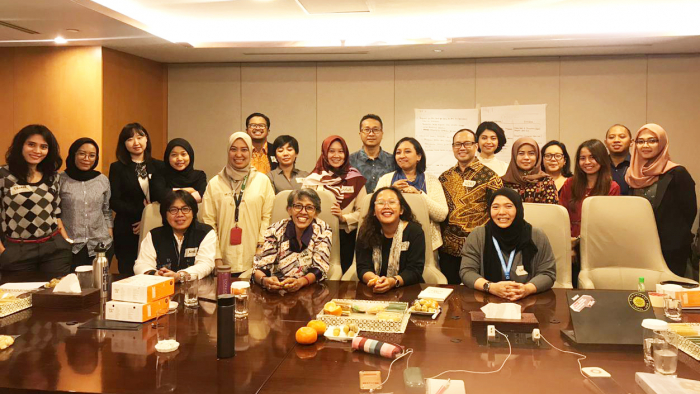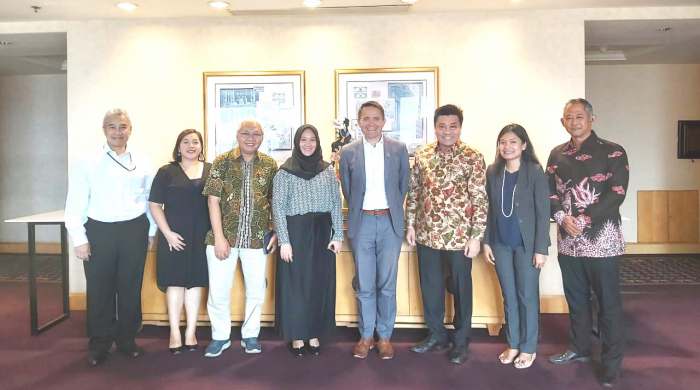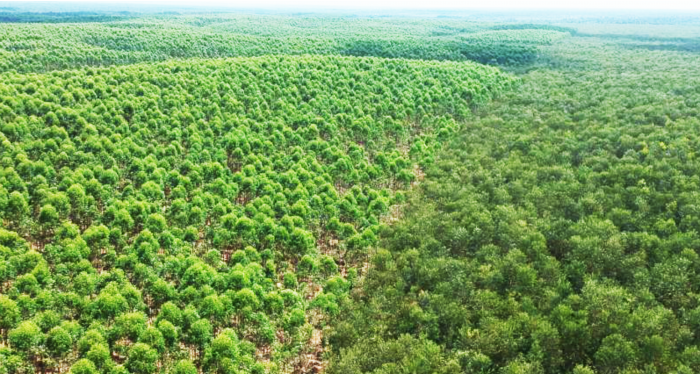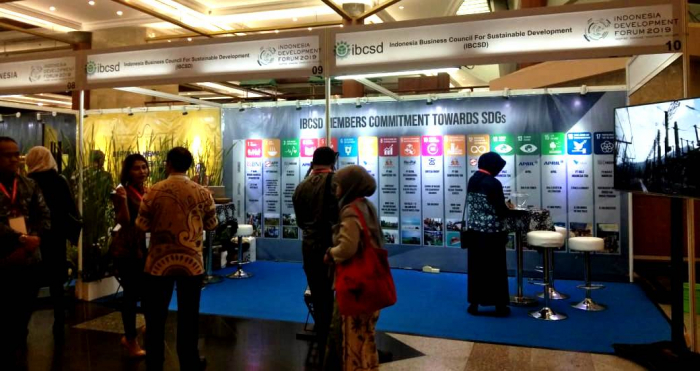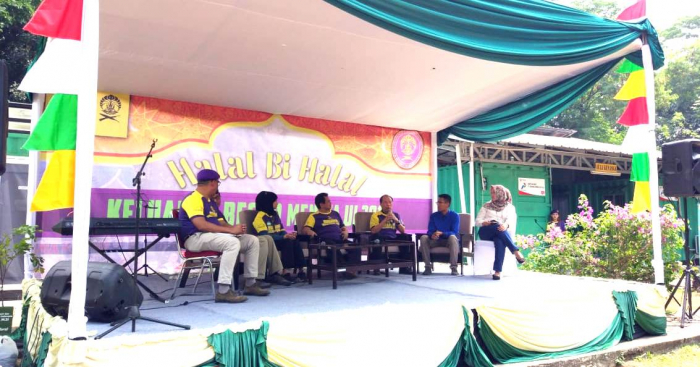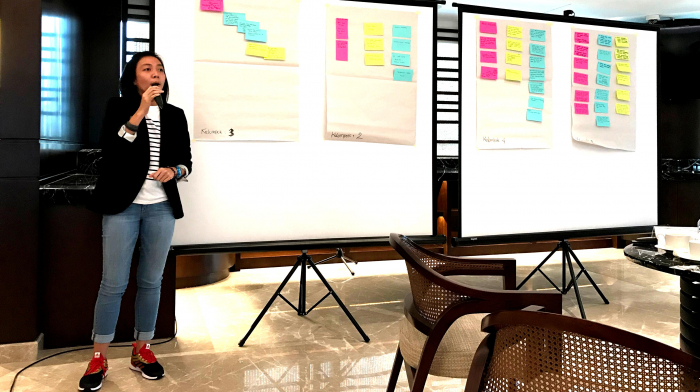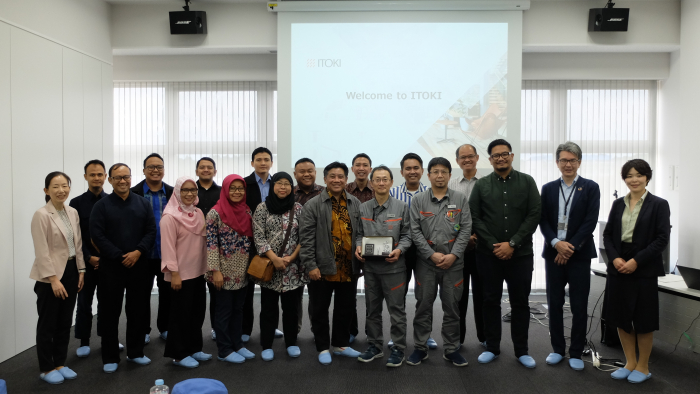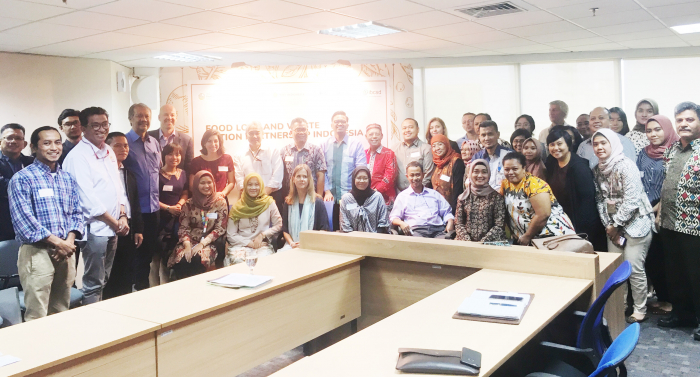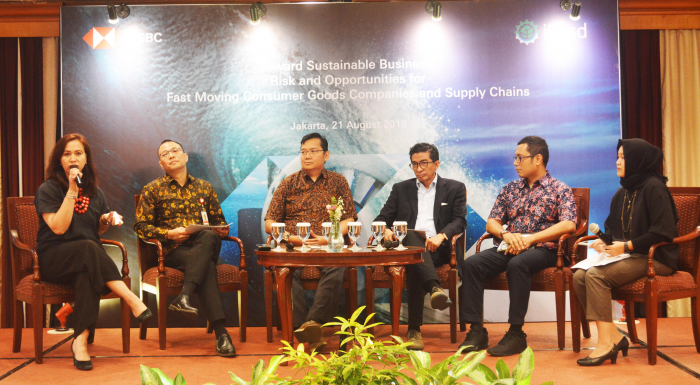
Towards FMCGs Sustainable Supply Chain Management
The seminar was attended by around 48 participants from FMCG companies and its supply chains, associations and civil society organization partners. The resource persons from various stakeholders were invited to provide multi-dimension views and trigger further discussion on the seminar topic. They were Mr. Radison Silalahi (Head of Green Industry Standard and Institutional Division, Centre for Green Industry, Ministry of Industry); Mr. Wisman Djaja (Director of Sustainable Agriculture Development, PT Nestlé Indonesia); Ms. Nuni Setyoko (Head of Corporate Sustainability, HSBC Indonesia) and Mr. Robin Tanzil (Senior Vice President Business Banking, HSBC Indonesia); Mr. Glenn Pardede (Managing Director, PT East West Seed Indonesia) and Mr. Aditya Bayunanda (Director of Policy, Sustainability & Transformation, WWF Indonesia).
In his opening remarks, Mr. Anurag Saigal, Deputy Head of Commercial Banking HSBC emphasized that environment is changing and it affects everybody’s life. HSBC has been participated to push forward the agenda of sustainability. Mr. Radison Silalahi from Ministry of Industry in his keynote speech said, “Green industry has been part of market demand and competitive advantage factor in line with increasing awareness of consumers on environmental sustainability. Innovations for green industry will make the companies have more competitive advantage in the future”. Mr. Wisman Djaja from PT Nestlé Indonesia emphasized that sustainability approach will double productivity in agriculture. However, he further underlined the importance of financial access for individual farmer. “Training only to farmers will not bring impact if individual farmer does not have access to financial support because current scheme of credit to farmers, such as KUR has not reached individual farmer”. Mr. Glenn Pardede from PT East West Seed Indonesia shared that his company works to offer high quality seeds. The company involves 7.000 farmers to produce high quality seeds. And the seeds from the factory are distributed to 7 million farmers across Indonesia. Mr. Aditya Bayunanda from WWF Indonesia shared on the importance of traceability of the farmer products. WWF is developing online platform for traceability on palm oil. When this platform is ready, it can also be used for other commodities and can support sustainable sourcing.
